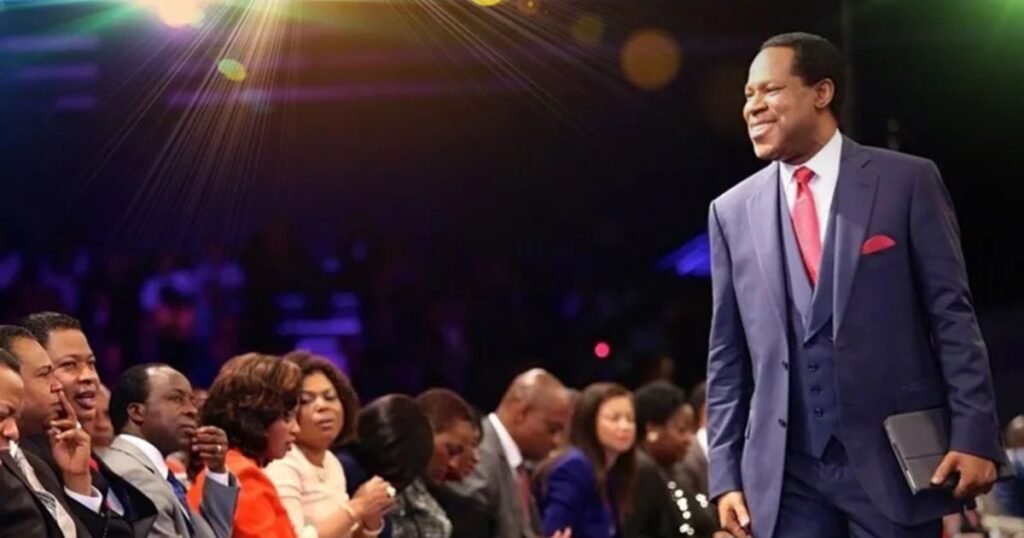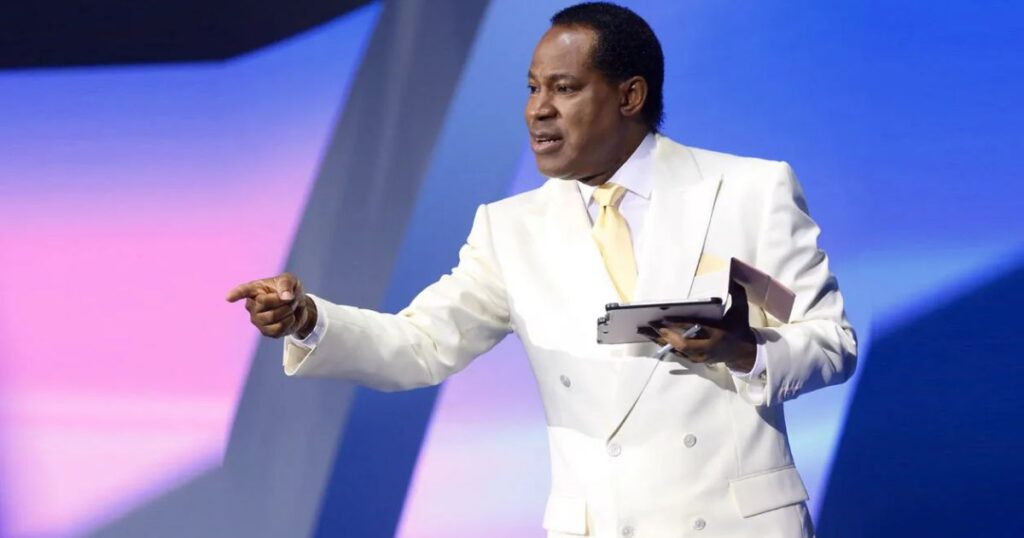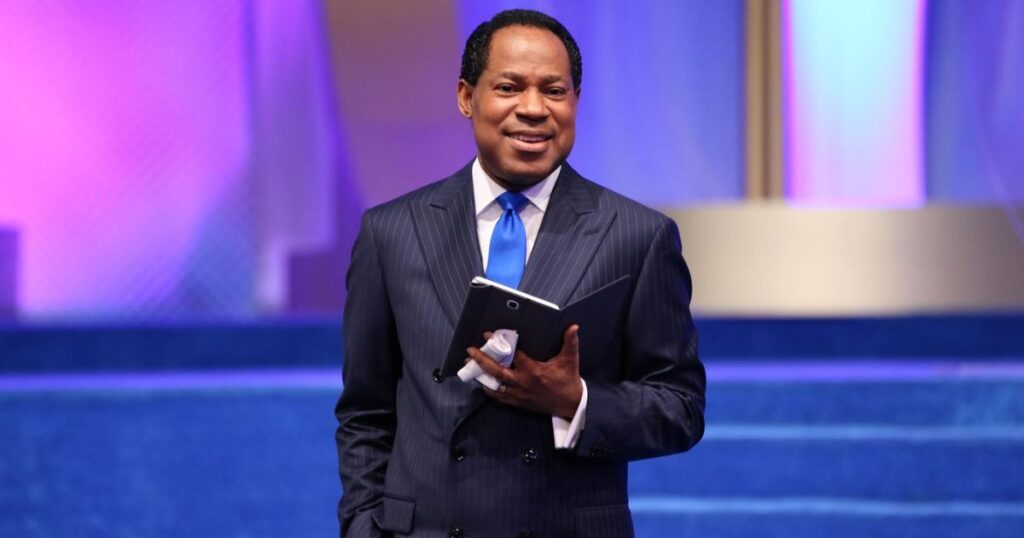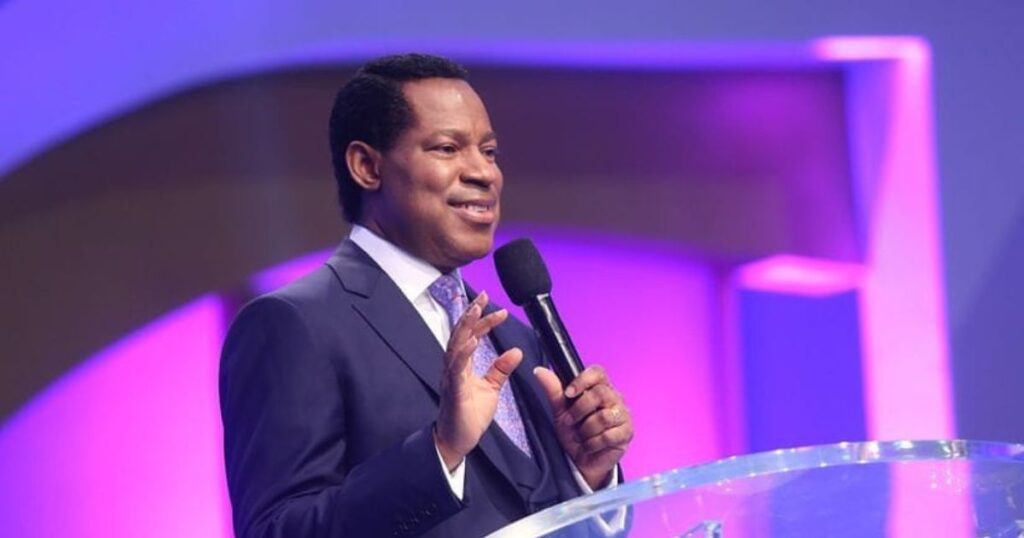The Christian community was rocked by a scandal involving Pastor Chris Hodges, the founding and senior pastor of the Church of the Highlands in Alabama.
On May 1, 2024, allegations surfaced about Hodges’ involvement in unethical behavior, sparking widespread outrage and demands for accountability.
While the details of the scandal remain confidential, it is clear that it has had a profound impact on the Church of the Highlands congregation, the broader Christian community, and the public’s perception of religious leadership.
The Complexity of Scandal
The Public’s Reaction

The news of Pastor Chris Hodges’ scandal ignited a firestorm of reactions across social media platforms, online forums, and news outlets.
Some expressed shock and disappointment, while others defended Hodges, citing his years of service and the need for forgiveness.
The public’s reaction highlighted the deep divisions and differing perspectives on ethical leadership, accountability, and the role of faith in navigating moral transgressions.
“I’ve been a member of Church of the Highlands for over a decade, and this news has shaken me to the core. How could someone we looked up to as a spiritual leader fall so far from grace?” – Sarah, Church of the Highlands member
The Call for Accountability
Amidst the heated debates, a resounding call for accountability echoed throughout the Christian community. Critics demanded transparency from Hodges, the Church of the Highlands leadership, and the broader denomination. They argued that ethical lapses by religious leaders should not be swept under the rug and that appropriate consequences must be enforced to uphold the integrity of the faith.
“Accountability is not about condemnation; it’s about holding leaders to the highest standards and ensuring that trust is not betrayed.” – Dr. Jonathan Miller, Professor of Theology and Ethics
The Journey of Forgiveness and Restoration

While some called for severe punitive measures, others advocated for a path of forgiveness and restoration. They recognized the human frailty of religious leaders and emphasized the importance of grace and redemption.
This perspective was met with skepticism by those who felt that forgiveness should be contingent upon genuine remorse, accountability, and a commitment to change.
More Post:
Does Harry Styles Have A Daughter In Real Life
Where Ethical Lines Are Drawn
Defining Ethical Leadership
The Pastor Chris Hodges scandal has reignited discussions about what constitutes ethical leadership, particularly within the religious sphere.
Experts and faith leaders have weighed in, emphasizing the need for integrity, transparency, and a strong moral compass.
They argue that religious leaders must embody the values they preach and serve as role models for their communities.
Consequences of Ethical Missteps
The potential consequences of ethical lapses by religious leaders are far-reaching and can undermine the credibility and trust of entire faith communities.
Beyond the immediate impact on the individual leader and their congregation, such scandals can damage interfaith relations, deter potential converts, and erode the public’s confidence in religious institutions.
Pathways to Restoration
While the road to restoration is often arduous, many experts believe it is possible with genuine repentance, accountability measures, and a commitment to ethical leadership.
Potential steps may include:
- Comprehensive ethical training for religious leaders
- Implementing robust accountability mechanisms
- Fostering open dialogues and feedback systems within faith communities
- Emphasizing the importance of ethical behavior in leadership development programs
The Apology
In the midst of the scandal, Pastor Chris Hodges issued a public apology, acknowledging his actions and expressing remorse. His statement read, in part:
“I have failed as a leader and a spiritual guide. My actions have caused immense pain and betrayed the trust of those who looked up to me. I take full responsibility for my ethical transgressions and ask for forgiveness from God, my family, my congregation, and the broader Christian community.”
Hodges’ apology was met with mixed reactions, with some commending his humility and others questioning the sincerity of his words.
Overview: Church of The Highlands Exposed

Initial Reactions and Immediate Impact
As news of the scandal broke, the Church of the Highlands community was thrown into turmoil. Initial reactions ranged from disbelief to anger, with some members announcing their immediate departure from the congregation.
The church’s attendance and donations reportedly took a significant hit, reflecting the erosion of trust and the struggle to grapple with the revelations about their spiritual leader.
Leadership Response and Actions Taken
In an effort to address the crisis, the Church of the Highlands leadership took swift action. They formed an investigative committee to thoroughly examine the allegations and determine appropriate disciplinary measures.
They implemented new policies and procedures to enhance transparency and accountability within the church’s leadership structure.
Long-Term Implications for Church and Community
While the immediate impact of the scandal was palpable, experts warn of potential long-term implications for the Church of the Highlands and the broader community.
The church’s reputation may take years to rebuild, and the ripple effects on the local community’s faith and trust in religious institutions could be lasting.
Some analysts predict a period of soul-searching and introspection for the church, as they grapple with the challenge of regaining credibility and restoring their moral authority.
The Church’s Reaction and Hodges’ Apology
The Church’s Official Statement
In response to the growing controversy, the Church of the Highlands released an official statement addressing the scandal.
The statement acknowledged the gravity of the situation and expressed remorse for the pain caused to the congregation and the broader community.
It outlined the steps being taken to investigate the allegations and ensure accountability, while also emphasizing the church’s commitment to transparency and ethical leadership.
Hodges’ Public Apology
Pastor Chris Hodges took to the pulpit to deliver a public apology, a moment that was broadcast live and widely watched by both supporters and critics.
In a somber tone, Hodges expressed deep remorse for his actions and acknowledged the betrayal of trust. He asked for forgiveness from his congregation, his family, and the Christian community at large.
“I stand before you today as a fallen leader, humbled by my own shortcomings and the weight of my transgressions. I have failed to uphold the ethical standards expected of me, and for that, I am truly sorry.” – Pastor Chris Hodges
The Congregation’s Response
Within the Church of the Highlands congregation, reactions to Hodges’ apology were varied. Some members expressed their unwavering support and forgiveness, citing their belief in redemption and second chances.
Others, however, felt that the apology was inadequate and that more concrete actions were needed to demonstrate genuine repentance and a commitment to change.
Moving Forward
As the Church of the Highlands navigates the aftermath of the scandal, the leadership has pledged to implement comprehensive reforms and measures to prevent similar ethical lapses in the future.
These include mandatory ethical training for all leaders, the establishment of an independent accountability board, and the creation of a confidential feedback system for congregants to voice concerns or report misconduct.
Lessons Learned

The Pastor Chris Hodges scandal has served as a sobering reminder of the importance of ethical leadership, accountability, and the need for robust mechanisms to address moral transgressions within religious institutions.
Both religious and secular experts have weighed in, offering valuable insights and lessons that can be learned from this situation.
One key lesson is the necessity of fostering open dialogues and feedback systems within faith communities. By creating safe spaces for congregants to voice concerns and report misconduct, potential ethical lapses can be addressed proactively, before they escalate into full-blown scandals.
Additionally, experts emphasize the importance of comprehensive ethical training for religious leaders, equipping them with the tools and knowledge to navigate complex moral dilemmas and uphold the highest standards of integrity.
The Broader Implications for the Christian Community
Ethical Leadership and Accountability
The Pastor Chris Hodges scandal has reignited discussions about ethical leadership and accountability within the broader Christian community.
Many faith leaders and theologians have called for a renewed emphasis on these principles, arguing that religious leaders must be held to the highest standards of moral conduct.
Furthermore, the scandal has highlighted the need for robust accountability mechanisms within religious institutions, ensuring that ethical lapses are addressed swiftly and transparently, without compromising the integrity of the faith.
Healing and Reconciliation Processes
In the wake of such a profound breach of trust, the Christian community has grappled with the challenge of healing and reconciliation.
Experts have advocated for the implementation of Truth and Reconciliation processes, which aim to promote open dialogue, acknowledge wrongdoings, and foster understanding and forgiveness.
These processes, which have been successfully employed in various contexts, could prove invaluable in mending the rifts caused by the scandal and rebuilding trust within the affected communities.
Impact on Interfaith and Ecumenical Relations
The Pastor Chris Hodges scandal has also had ripple effects on interfaith and ecumenical relations. Some leaders from other faith traditions have expressed concern over the potential damage to the Christian witness and credibility, particularly in the realm of moral leadership.
Other have viewed this as an opportunity for dialogue and mutual understanding. By openly acknowledging and addressing ethical lapses within their own ranks, Christians can demonstrate a commitment to transparency and accountability, fostering greater respect and trust across religious boundaries.
Moreover, this incident has underscored the universal need for ethical leadership, transcending any single faith tradition. It serves as a reminder that all religious communities must remain vigilant in upholding the highest moral standards and holding their leaders accountable.
Moving Forward
Rebuilding Trust Through Action
As the dust settles on the Pastor Chris Hodges scandal, the road ahead for the Church of the Highlands and the broader Christian community is one of rebuilding trust through decisive action.
Concrete steps must be taken to demonstrate a genuine commitment to ethical leadership, accountability, and transparency.
This may include:
- Implementing robust policies and procedures to prevent future ethical lapses
- Establishing independent oversight committees to monitor leadership conduct
- Fostering open dialogues and feedback mechanisms within congregations
- Demonstrating a renewed commitment to community service and outreach
By taking such actions, religious institutions can begin to restore the faith and trust of their members and the broader public.
Strengthening Community Bonds
The scandal has also highlighted the importance of strengthening bonds within religious communities and fostering a sense of unity and collective responsibility.
When trust is breached, it is essential for congregations to come together, support one another, and work collaboratively towards healing and reconciliation.
Community-building initiatives, such as service projects, youth leadership programs, and open forums for dialogue, can play a crucial role in this process.
By working together and embodying the values they espouse, religious communities can emerge from such crises stronger and more resilient.
Innovation in Spiritual Leadership
Finally, the Pastor Chris Hodges scandal presents an opportunity for innovation and transformation in the realm of spiritual leadership.
It has exposed the need for new models of accountable, ethical, and transparent leadership within religious institutions.
Visionary leaders and faith communities may explore fresh approaches to leadership development, incorporating best practices from various sectors and embracing principles of servant leadership, emotional intelligence, and ethical decision-making.
You May Also Like This:
Grace Charis: Net Worth, Bio, Age, Height, Career
Frequently Asked Questions (FAQs)
How can members of the congregation get involved in community outreach programs?
Congregation members can participate in community outreach programs by signing up through the church’s website or contacting the church office for details on upcoming projects and how to join.
What steps is the church taking to ensure the ethical training of its leaders?
The church has implemented a comprehensive ethical training program for its leaders, which includes workshops, mentorship, and regular evaluation sessions to reinforce the commitment to integrity and accountability.
How can someone contribute to the church’s efforts in strengthening community bonds?
Contributions can be made by participating in small group meetings, volunteering for church events, or supporting outreach initiatives designed to help those in need within the community.
Can individuals outside the church community contribute to or benefit from the church’s service projects?
Yes, individuals outside the church community are welcome to contribute to and benefit from the church’s service projects. Details on how to contribute or participate can be found on the church’s website.
What measures are in place to address concerns or grievances within the church community?
The church has established a confidential feedback system accessible through its website or in person at its office to ensure that concerns or grievances are addressed in a timely and respectful manner.
How can the youth get involved in leadership development programs?
Youth can get involved in leadership development programs by applying through the church’s online platform or reaching out to the youth program coordinator for more information.
Final Words
The Pastor Chris Hodges scandal shook the foundations of the Church of the Highlands, sparking introspection and dialogue within the community. Despite the upheaval, Hodges’ public apology marked a crucial step towards healing and reconciliation.
The incident highlighted the importance of ethical leadership, transparency, and accountability within religious institutions. Moving forward, the church is committed to strengthening its governance structures, fostering community bonds, and empowering future leaders.
Through lessons learned and a renewed dedication to its values, the church aims to emerge from this ordeal stronger and more united, reaffirming its commitment to its spiritual mission and the well-being of its congregation.







